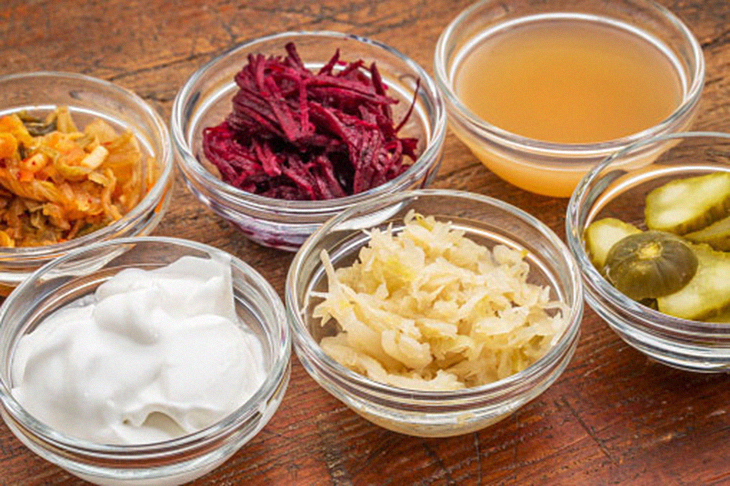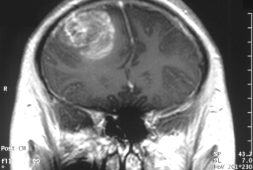
Health experts constantly preach about gut health and how could actually help improve your overall wellbeing. Many have proven how the gut microbiome is closely linked to health, and that diet can make both good and bad changes in the microbiome.
Researchers have recently conducted a small-scale preliminary study and compared the effects of two diets on the gut microbiome. It has been seen that a fermented food diet increased the diversity of the gut microbiome and also lowered markers of inflammation.
The Study
In the most recent proof-of-concept study made with a specified number of participants, researchers have found that eating fermented foods increased the diversity of the gut microbiomes and reduced markers of inflammation. On the other hand, those who consumed a high fiber diet did not see an increase in the diversity of their gut microbiome.
The research conducted appeared in the journal Cell. This has managed to lay the groundwork for further research that may explore a more depth study on how different dietary interventions can positively affect the gut microbiome of an individual.
Gut Microbiome
So, why is the gut microbiome important? To start with, a person’s microbiome includes the various bacteria and other microorganisms that exist inside and outside the body. The gut microbiome is a particularly diverse location of these microbes and it links to other parts of the body as well. In fact, during the last 10 years, there has been a significant increase in the number of researches conducted on it as scientists have been curious as to how this is closely linked to health.
The researchers have managed to show how the gut microbiome plays an extremely vital role in health. Its overall makeup has the ability to affect the development of many noncommunicable chronic diseases. A few examples of which are gastrointestinal disorders, metabolic diseases, and some forms of cancer.
The gut microbiome generally stays quite stable during its lifetime, but that doesn’t mean that it can’t get affected by changes. There certain factors that can significantly affect it. Hence, they have taken note of such aspects including environmental factors, medications, and dietary patterns. Given the tight connection between the gut microbiome and health, scientists are interested in specifically altering a person’s gut microbiome to make it work for his or her benefit.
This has been a pressing and an interesting issue because researchers have argued that Western diets tend to reduce the diversity of gut microbiomes. Hence, negative effects on people’s health can be felt. For instance, in a 2018 article in the journal Nutrients, Marit K. Zinöcker, of the Department of Nutrition at Bjørknes University College in Oslo, Norway, and Inge A. Lindseth of the Department of Clinical Science at the University of Bergen, Norway, made claims on how ultra-processed food that predominates in the Western diet has altered it significantly. There have been consequences felt by many such as chronic inflammation, which is an underlying factor in several noncommunicable chronic diseases.
Because a person’s diet can significantly affect the microbiome, the researchers behind the present study were interested in looking into the outcomes of certain specified dietary interventions. If they can prove how specific dietary interventions can positively alter the gut microbiome, then these could be beneficial for everyone in the future. Doctors and health experts will then be able to make recommendations for a nutritious, well-balanced diet. That’s because if more people had a healthy gut microbiome, the world could see a reduction in noncommunicable chronic diseases. According to the World Health Organization (WHO), these diseases are responsible for 71 percent of deaths all over the world on a yearly basis.
Fiber and Fermentation
In the latest study made, the researchers looked deeper into two dietary interventions types: a fermented foods diet for one and a high fiber diet for another. They chose these types of interventions because the first research had shown that both fermented food and fiber promote beneficial changes in the gut microbiome.
The researchers commissioned 36 participants, of whom 73 percent were women, and 81 percent were white. These individuals were considered to be generally healthy. Then, they collected blood and stool samples from all the participants for three weeks. This was meant to act as a baseline. After which, they randomly assigned the people to one of two diets involved. The first diet chosen was the one high in fermented foods, such as yogurt, kimchi, and kombucha. The second diet chosen, on the other hand, was high in fiber.
The participants slowly escalated their intake of either fermented foods or fiber. This, of course, depended on group they were in. They were asked to do this for four weeks. After that, they followed the full high fiber or high fermented food diet for an additional six weeks. The group that had the fermented foods increased their intake from an average of 0.4 servings to six portions each day. The group that had fiber in their diet increased their intake from 21.5 grams (g) to 45.1 g each day.
Lastly, the participants had four weeks during which they would be asked to continue the diet if they were willing to do it, and throughout each stage of the research, the experts consistently collected blood and stool samples from all of them. The latter set of samples enabled them to identify any changes to the gut microbiome. The blood samples, on the other hand, looked into the fluctuations (if any) in key biological markers of inflammation and general health.
Fermented Food Increased Microbiome Diversity
The team behind the research then analyzed the data they’ve gathered and found that the diversity of the gut microbiomes of the those who had fermented food in their diet significantly increased.
Dr. Justin Sonnenburg, Ph.D., an associate professor of microbiology and immunology at Stanford University, CA, and also a corresponding author of the study saw these observations. He stated, “This is a stunning finding. It provides one of the first examples of how a simple change in diet can reproducibly remodel the microbiota across a cohort of healthy adults.” The researchers in the team also discovered that for those who were on the fermented food diet, 19 inflammatory proteins decreased, and four types of immune cell had less activation.
Prof. Christopher Gardner, Ph.D., who is Rehnborg Farquhar Professor and director of nutrition studies at the Stanford Prevention Research Center, and another corresponding author, said, “Microbiota-targeted diets can change immune status, providing a promising avenue for decreasing inflammation in healthy adults.” He further explained, “This finding was consistent across all participants in the study who were assigned to the higher fermented food group.”
There was a stark contrast with the participants on the fiber diet. The researchers found no changes to the diversity of their gut microbiome and no decrease in the 19 inflammatory proteins. Dr. Erica Sonnenburg, Ph.D., a senior research scientist in basic life sciences, microbiology, and immunology at Stanford and another corresponding author of the study also observed the differences. She noted, “We expected high fiber to have a more universally beneficial effect and increase microbiota diversity. The data suggest that increased fiber intake alone over a short time period is insufficient to increase microbiota diversity.”
The researchers also noticed how participants that were on the high fiber diet had more carbohydrates. They found these in the stool samples collected. This finding suggests that the participants did not have the right gut microbes to break down the fiber intake comprehensively and fully.
According to Dr. Erica Sonnenburg, “It is possible that a longer intervention would have allowed for the microbiota to adequately adapt to the increase in fiber consumption. Alternatively, the deliberate introduction of fiber-consuming microbes may be required to increase the microbiota’s capacity to break down the carbohydrates.”
As a consequence, further research needs to be made, particularly one that tracks the effects of a high fiber diet over a longer period or looks at a diet high in both fiber and fermented foods. The findings made here may provide further information about how doctors and health experts can positively make significant improvements in their patient’s gut microbiome. Moreover, the future studies made would also benefit from a sample size that’s actually larger and more diverse.



